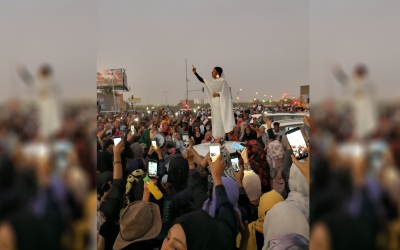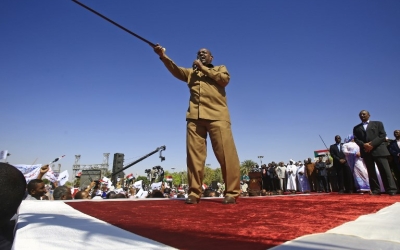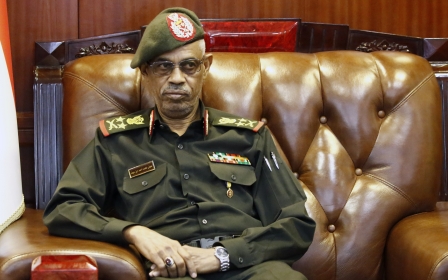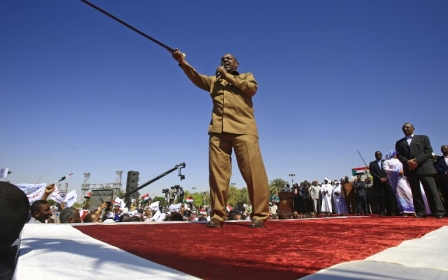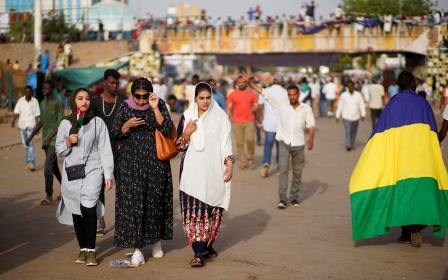Sudan's intelligence chief Salah Gosh resigns: Military council
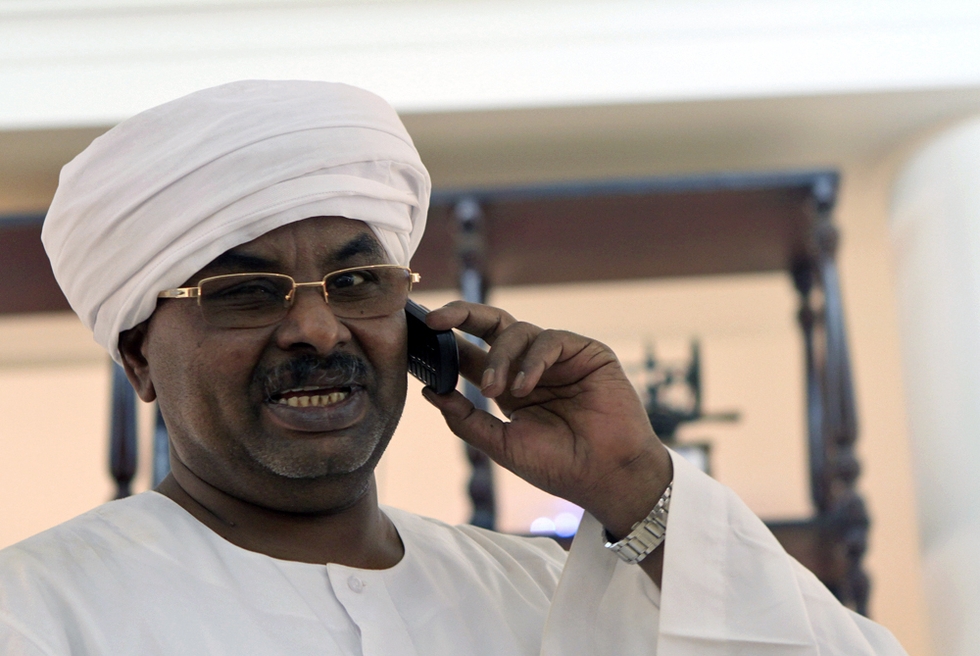
Salah Gosh, the head of Sudan's feared National Intelligence and Security Service (NISS), has resigned from his post, the country's new military rulers have said on Saturday.
"The chief of the transitional military council, Abdel Fattah al-Burhan, has accepted the resignation of ... the chief of NISS," the transitional military council said.
Gosh had overseen a sweeping crackdown led by NISS agents against protesters taking part in four months of mass demonstrations that led up to the toppling of longtime president Omar al-Bashir in a palace coup by the army on Thursday.
Thousands of protesters, opposition activists and journalists were arrested during the crackdown.
Last month, Middle East Eye revealed that Gosh had held secret talks with the head of Mossad in Germany in February as part of a plot hatched by Israel's Gulf allies to elevate him to the presidency if Bashir was toppled from power.
New MEE newsletter: Jerusalem Dispatch
Sign up to get the latest insights and analysis on Israel-Palestine, alongside Turkey Unpacked and other MEE newsletters
Highlighting what appeared to be a divide between lower ranks of the army and the NISS, clashes had erupted on Tuesday between soldiers trying to protect protesters against Bashir's rule and intelligence and security personnel trying to disperse them.
New military leader
Gosh's resignation comes just a day after Defence Minister Awad Ahmed ibn Auf, who was sworn in to lead the transitional military council on Thursday, stepped down from the post after less than 24 hours into the role.
Ibn Auf was replaced by Lieutenant General Abdel Fattah al-Burhan, who was sworn in as transitional ruler on Friday evening.
In his first televised address on Saturday, Burhan said that a civilian government would be established after consultations with opposition forces and promised that the transitional period would last for a maximum of two years.
He also announced the lifting of a night curfew implemented by his predecessor and ordered the release of all prisoners jailed under emergency laws ordered by Bashir.
Meanwhile, Bashir's party urged the country's new ruling military council Saturday to release him and other key members.
"We consider the military council's power grab a violation of constitutional law," the National Congress Party said in a statement. "The NCP rejects the detention of its leaders, among them its acting president and a large number of prominent members, and calls for their immediate release."
Gosh's CIA connections
Gosh was well known in the US, where he earned a reputation during the 2000s as a spy chief with whom the CIA could work in the "war on terror" against al-Qaeda, even visiting the US in 2005 when, as now, Sudan was listed by the State Department as a state sponsor of terrorism.
Gosh headed NISS between 2004 and 2009, when Bashir appointed him as his national security adviser.
He was sacked in 2011 and later arrested on suspicion of involvement in a coup plot, but was released with a presidential pardon in 2013.
He was reappointed as the head of NISS in February 2018.
Over the years, the NISS has overseen repeated crackdowns on government opponents and the media.
Its agents frequently confiscated the entire print-runs of newspapers that criticised government policy or reported on anti-government protests.
On Saturday, Amnesty International called for the new military leadership to investigate Gosh's role in the killing of demonstrators during the protests against Bashir.
"It is crucial that Sudan's new authorities investigate Salah Gosh's role in the killings of scores of Sudanese protesters over the past four months," Amnesty said in a statement.
The rights group said "allegations of torture, arbitrary detention and other human rights violations under" Gosh's supervision of the intelligence service should also be investigated.
'Veteran soldier'
In a statement late on Friday, ibn Auf had said his deputy on the transitional council, Kamal Abdul-Marouf al-Mahi, was also quitting.
Ibn Ouf's exit has catapulted Burhan, who had a stint as Sudan's defence attache to Beijing, from the shadows to the de facto head of the country.
"Burhan is a high ranking officer within the armed forces, but basically he's a veteran soldier," said an army officer, who did not want to be named.
"He's never been in the limelight like Ibn Ouf or General Kamal Abdelmarouf."
Like Gosh and ibn Auf, Burhan has also been accused of involvement in war crimes in Darfur, for his role as a militia commander.
On Friday, hours before he was named as Sudan's new military ruler, he was seen talking to protesters who have camped outside the army headquarters since 6 April.
'Transitional period'
Despite the end of Bashir's rule, demonstrators have continued to protest across the country in rejection of the new military authority's plan for a two-year "transitional period".
At least 16 people were killed, and 20 wounded by stray bullets at protests and sit-ins on Thursday and Friday, a Sudanese police spokesman said in a statement on Saturday quoted by Reuters.
Government buildings and private property were also attacked, Reuters said, citing spokesman Hashem Ali.
The Sudanese Professional Association (SPA), a leading group in the protest campaign that began late last year against Bashir, called ibn Auf and Mahi's resignation a "victory for the will of the masses".
The association also urged protesters to remain in the streets.
Middle East Eye delivers independent and unrivalled coverage and analysis of the Middle East, North Africa and beyond. To learn more about republishing this content and the associated fees, please fill out this form. More about MEE can be found here.


